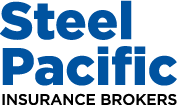Probably due to the harsh reality of the current economic climate, it is estimated that 1 in 6 small businesses have no insurance of any kind. Of businesses that are insured, half of these are insured for only 60 to 85% of Replacement Value. And it gets worse with the revelation that between 17 to 25% of ALL small businesses are under insured and risk business failure following a serious insurable event.
The most alarming part to Underinsurance is that it’s predominately discovered at the time of a claim or loss, which by then is too late to rectify. This has been demonstrated on many occasions over recent years following major events such as floods, storms, bushfires and cyclones.
Underinsurance may impact a wide number of General Insurance Products, including but not limited to:
- Home & Contents Insurance
- Commercial Motor Vehicle Insurance
- Strata Insurance – both Commercial & Domestic
- Business Insurance
- Industrial Special Risks (ISR) Insurance
- Marine Insurance – both Leisure & Commercial Hull
- Transit Insurance
- Liability Insurance
Under these named Policies there are also Policy ‘Sub Limit(s)’ in areas such as: 1) Removal of Debris; 2) Reinstatement; 3) Extra Costs of Reinstatement; 4) Business Interruption; 5) Care Custody and Control… and all need to be considered when tailoring specific insurance contracts. These Policy areas will be discussed in more detail in future editions of Brokerwise.
There are Insurer Guidelines that provide both Underwriting and Claims considerations once Underinsurance has been discovered. Different insurers have varying degrees of Underinsurance impacts to Insurance Policies and these are always displayed as part of the Policy Coverage Terms and Conditions provided.
That is why it’s imperative and prudent to constantly review your Policy Limits and sub limits as part of an on-going risk management strategy. This shouldn’t just occur at Policy Renewal as asset value increases, renovations or upgrades etc., may have occurred during the Policy ‘Insurance Period’. These reviews should be done in consultation with your insurance professional to ensure your Limits of Coverage are adequate. Don’t wait until you make a claim to find out they are not.
There are many considerations when selecting Policy Limits and there are professionals such as builders who are aware of building costs and any standard changes to the Building Codes that may assist.
Property and Business Valuers are also a real asset when setting figures. Specialist insurance areas such as Business Interruption may require the assistance of accountants or financial advisors, or both, to ensure accuracy.
It’s a sensible approach to discuss Policy Limits following any purchases or disposal of assets and a sound practice to ensure that your level of coverage represents a minimum of Replacement Value.
Remember, it’s too late once a claim occurs to say, “I should have phoned my Broker to discuss….”
